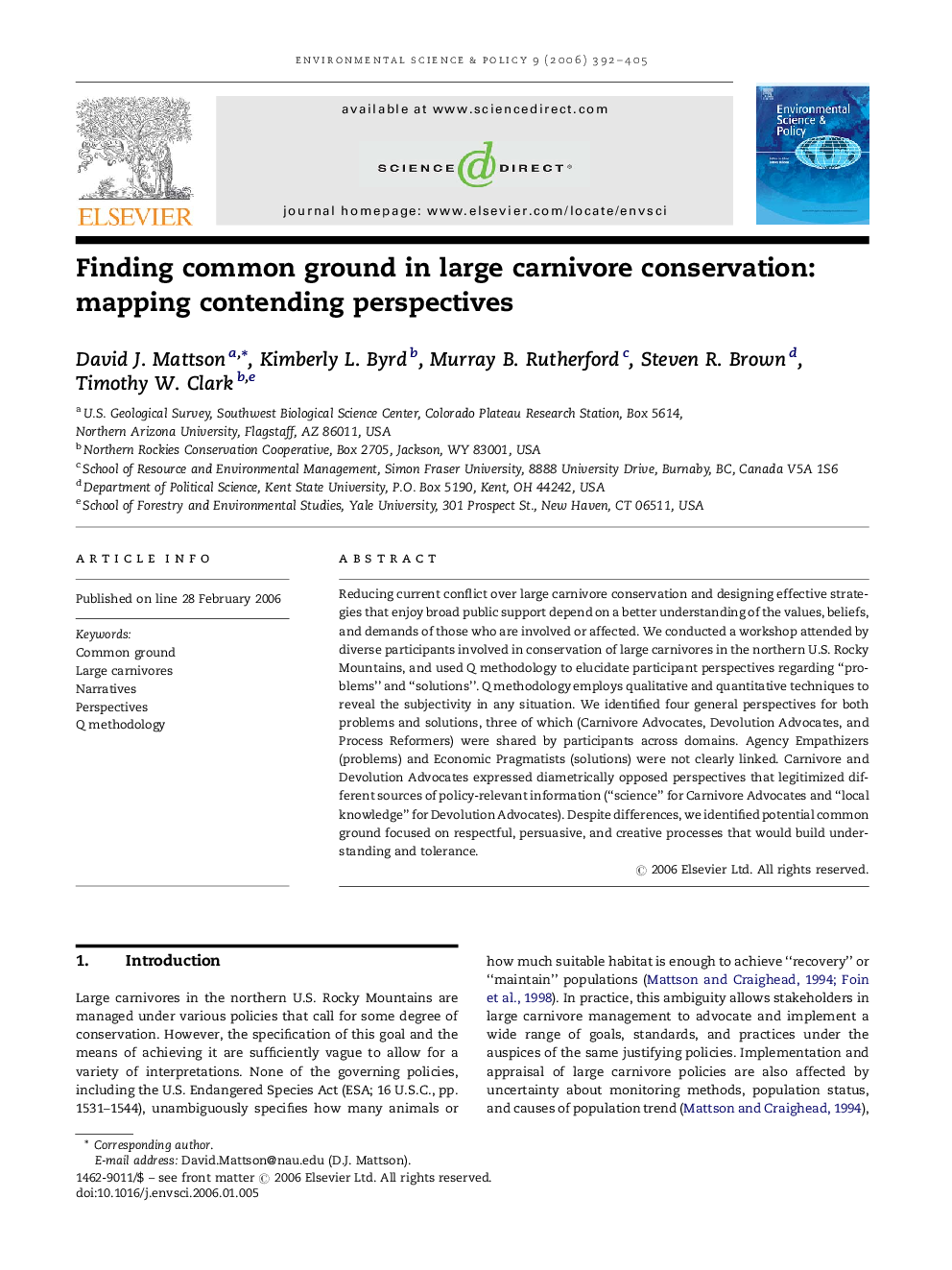| Article ID | Journal | Published Year | Pages | File Type |
|---|---|---|---|---|
| 1054208 | Environmental Science & Policy | 2006 | 14 Pages |
Reducing current conflict over large carnivore conservation and designing effective strategies that enjoy broad public support depend on a better understanding of the values, beliefs, and demands of those who are involved or affected. We conducted a workshop attended by diverse participants involved in conservation of large carnivores in the northern U.S. Rocky Mountains, and used Q methodology to elucidate participant perspectives regarding “problems” and “solutions”. Q methodology employs qualitative and quantitative techniques to reveal the subjectivity in any situation. We identified four general perspectives for both problems and solutions, three of which (Carnivore Advocates, Devolution Advocates, and Process Reformers) were shared by participants across domains. Agency Empathizers (problems) and Economic Pragmatists (solutions) were not clearly linked. Carnivore and Devolution Advocates expressed diametrically opposed perspectives that legitimized different sources of policy-relevant information (“science” for Carnivore Advocates and “local knowledge” for Devolution Advocates). Despite differences, we identified potential common ground focused on respectful, persuasive, and creative processes that would build understanding and tolerance.
